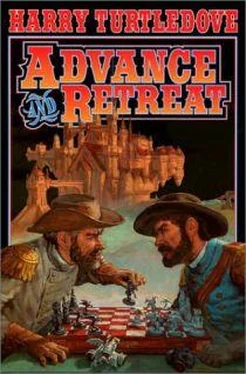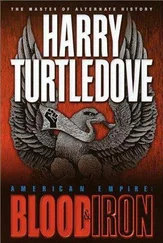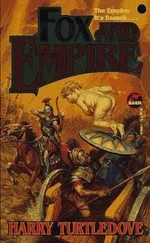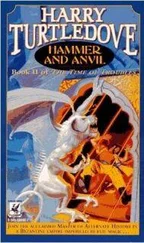“Hard-Riding Jimmy hasn’t got very many men, not if he wants to stand against Ned of the Forest.” Doubting George sounded even more dubious than usual.
His adjutant spoke soothingly: “They carry those newfangled quick-shooting crossbows, though. There may not be many of them, but they can put a lot of bolts in the air.”
Hesmucet had offered Doubting George the same sort of consolation when he’d given him Hard-Riding Jimmy’s brigade. “Newfangled crossbows are all very well,” George said now, “but one of the reasons you take newfangled weapons into the field is to find out what goes wrong with them. Tangling with Ned of the Forest’s unicorn-riders is liable to be an expensive way to find out.”
“That’s if they don’t work as advertised,” Andy said.
Doubting George raised one dark eyebrow. “When have you ever known a newfangled weapon that did, Colonel?”
Andy frowned. After a moment, he shrugged. “Well, you’ve got me there, sir. But these have seen some use-and besides, there’s bound to be a first time.”
“Yes, so there is,” George agreed. “But has the Lion God come down from Mount Panamgam and whispered in your ear that this is it?”
“Uh… no, sir.” Colonel Andy looked as if he wasn’t sure whether George was serious.
Since the commanding general wasn’t sure whether he was serious, either, that suited him fine. He gave Andy his blandest smile. “Have you got any other delightful news for me, Colonel?”
“Uh… no, sir,” his adjutant repeated.
“All right. You’re dismissed,” George said. “I’m going to review our works here. Unless John the Lister takes Lieutenant General Bell’s army clean off the board, Bell’s heading this way. Or do you think I’m wrong?”
“No, sir.” Andy sounded sure about that. “And it’s not very likely that John can smash Bell, is it, not when he’s so badly outnumbered?”
“I thought I just said that. Maybe I’m wrong.” Doubting George dug into his map case. Andy departed, shaking his head.
The maps showed what George already knew: Ramblerton was a town fortified to a faretheewell. The southrons had taken it away from King Geoffrey’s men when the war was barely a year old, and they’d held it ever since, even when Thraxton the Braggart mounted an invasion of Cloviston. To hold it with the fewest possible men, they’d surrounded it with a ring of trenches and forts as strong as any in Detina save perhaps those of Georgetown itself.
Doubting George shook his big head. The works at Pierreville, north of Nonesuch-the works Marshal Bart was now besieging-were probably this strong, too. He hadn’t thought of them for a moment because they belonged to the traitors. But that was wrong. Detina was still one kingdom. If not, why fight for Avram?
He hadn’t dwelt on such things for a while. And he’d already given his own answer, to himself and to Detina. As far as he was concerned, his homeland was and could be only one kingdom. If that meant it would be one kingdom without serfs, then it did, and he would worry about what, if anything, that meant later on. He’d felt the same when he declined to follow Duke Edward of Arlington after Parthenia Province declared for Geoffrey and against Avram: that even though he’d been a liege lord himself, over a small fief in Parthenia.
False King Geoffrey had solved his problem there long before King Avram could have worried about it. George chuckled. Now, at a distance of more than three years, he could find it funny. He didn’t need to worry about serfs if he didn’t own that estate any more. And he didn’t, not according to Geoffrey, who’d taken it away from him.
If the south won the War Between the Provinces-no, when the south won the War Between the Provinces-he could go back again. He could take his place among his neighbors as a minor nobleman. He could, yes, but how much good would it do him? He would be a minor nobleman without blonds to work the land. Under those circumstances, what point to going back at all?
That was one obvious question. Another question, equally obvious, was, what would his erstwhile neighbors, who were also minor nobles in Parthenia Province, do after the south won the war? How would they bring in their crops without plenty of blond serfs to do the hard work for them? Would they labor in the fields themselves, with their wives and children?
“I doubt it,” George said, and went back to the maps.
But maps could show him only so much. They chiefly showed him the places he needed to see with his own eyes. He put on a wool hat and a gray overcoat and left his warm headquarters to give his own eyes the looks they needed.
Ramblertonians glowered at him as he made his way north up a muddy street (and, when it rained, Ramblerton had no other kind of street). King Avram’s soldier’s had held Franklin’s metropolis-such as it was-for two and a half years now. The locals still resented them. Doubting George laughed. The locals did more than resent. They hated southrons, with a hatred that had curdled and grown more sullen over time because it was so impotent.
“Bell’ll bundle you bastards back where you belong!” somebody shouted after George walked past.
He stopped and looked back. That was exactly what the Ramblertonian had wanted him to do, of course… whichever Ramblertonian it was. Six or eight Detinans in civilian clothes sent mocking stares his way. He judged they would all mock him if he said, I doubt it . What he said instead was, “Well, he’s welcome to try.” Then, tipping his hat to them, he went on his way.
They muttered behind him. He doubted they would have the nerve to rush him, and he proved right. They could jeer, but that was all they could do. And Geoffrey’s so-called kingdom is no better off than they are , George thought, and smiled again.
The maps had got behind the fortifications they were supposed to represent. Doubting George had hoped that was so, but hadn’t dared to expect it: if he assumed the worst, he was unlikely to be disappointed. Here, though, areas that had seemed weak on parchment looked rugged in reality.
Blonds did most of the ongoing work, under the orders of Detinan engineers. Runaway serfs dug trenches, carried dirt in barrows and hods, and raised ramparts where none had stood before. Some of them wore gray tunics and pantaloons of a cut not much different from that of southron uniforms. Others had on the rags of the clothes they’d worn while fleeing their liege lords’ estates. All of them were probably working harder than they ever had back on those estates.
What struck Doubting George was how happy the blonds looked. Detinans, especially Detinans from the north, thought of blonds as a happy-go-lucky lot, always smiling regardless of whether things called for a smile. That, George now suspected, was a mask serfs wore to keep Detinans from knowing what was really in their minds. These blonds, by contrast, looked and sounded and acted really happy, no matter how hard they were working.
One of them recognized Doubting George. Waving, the fellow called, “General, we want you to use these works to kill loads and loads of those stinking northern nobles.”
“We’ll do our best,” the general commanding answered. He wondered if the blond knew he was a stinking northern noble. He had his…
“Kill ’em all,” the blond said. “Bury ’em all. Stick ’em in the ground. Don’t give ’em to the fire. Don’t let their spirits rise up with the flames and the smoke.”
The rest of the runaways now laboring for King Avram nodded. Back in the old days, before the conquerors came, most blonds had buried their dead. Now they followed ordinary Detinan usage, and looked on burial with as much horror as ordinary Detinans did. Odds were these fellows hadn’t the faintest idea what their ancestors had done.
Читать дальше












